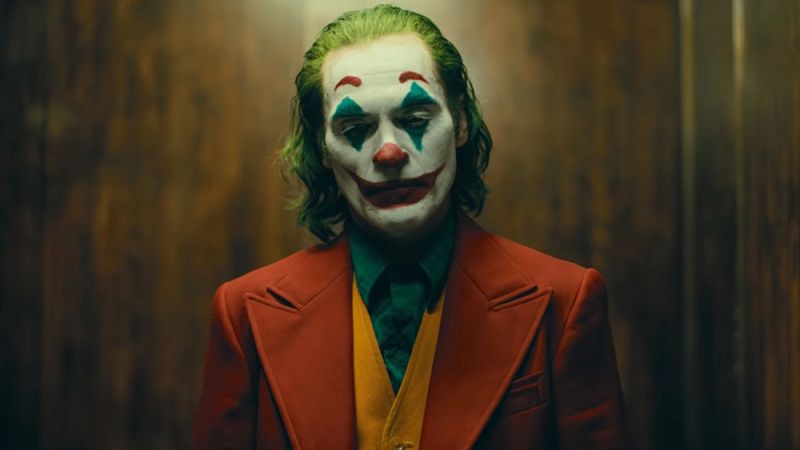As a recently-diagnosed schizophrenic, I recall feeling what I believe to be reasonable discomfort regarding everybody’s fascination over Joker, leading up to its release.
However, considering the overall stats regarding people’s growing attention to mental health, I also note a burning sense of idealism. So, when people tell me to go and see it with seeming face-value sincerity, I finally scrimp enough coin to buy myself a ticket and I go with a colleague from work.
I see the film rubbing up so many people in such ambivalence.
What I originally hoped for the film confirms the overarching notes in those who have seen its cheers, despite the media circus frenzy. I pick up a new file now, aiming to question whether it truly is unparalleled cinema or merely significant based on subjective experience.
It may be audacious to say I believe Joker is not only a stand-alone among the litany in the greater oeuvre, but that it is pushing the mould to its associates regarding the larger conversation, something that makes this writer breath a sigh of relief. Its effort is its renaissance to the babble; the most significant movie of our – or my – age.
The director, Todd Philips, gives a contemporary echo-feedback loop by drawing from the works of Martin Scorsese, who was briefly an executive producer on the film, reviving the psychological signature of his films; a driving force for social commentary back in the golden age of cinema’s new dawn. Taxi Driver and The King of Comedy are two pertinent examples.
However, this time Phillips uses Gotham City (host to Batman and other DC expendables) as a near-genius backdrop, for another new age in mental health dialogue. With the cartoonish soberness of Christopher Nolan's The Dark Knight franchise, we have a marketing strategy; a safe space to explore the hypothetical and hyperbolic relating to questionable individuals’ lives and minds.
In Joker, we’re along for the uncomfortable, yet talented, performance by Joaquin Phoenix, a brilliant role executed with finesse and subtlety. The audience learning as Arthur Fleck, the protagonist, slips through psychosis in a dystopian facsimile city to our own, with little understanding from the caricature citizens we all-too-easily recognise: the working class assholes trying their best, based on what they know and believe; the Right-wing bigwig Thomas Wayne, dividing the population with tough-love; and the general public’s Left-leaning riots in response.
This all steers Arthur’s descent into not only psychosis, but eventually psychopathy, as he is repeatedly met by people’s intolerance and, in some cases, ridicule; a society fostering something out of its own ignorance and nonchalance and flat insensitivity.
Going back, Taxi Driver was the first look at the vagueness in psychotic peoples’ intent, a conversation that plagues anybody typical of schizo-tendencies. Believe me. It’s grown stale in the creative sphere, though. A conversation exciting our anxieties and corroborating dated taboos oftentimes with little sympathy for swaying forces’ origins. It was a movie made to unveil the existential trepidation in lieu of the more ambiguous persons. It was necessary. Though with 50 years comes tired conversation.
In Joker, we learn with the overarching theme: that monsters and malcontents committing such heinous crimes, crimes depicted and streamed through an industry of services in seemingly every damn middle-class home’s lounge room's soup kitchen aren’t necessarily born this way. Maybe it’s actually getting to such a rift in understanding about the taboo of some (more unfavourable) mental illnesses, we have to reflect on ourselves.
I feel this is important conversation regarding America’s gun debate. Originally, I was disconcerted the film only received an MA15+ age limit. Though, how young do psychosis and psychopathy reach its infectious vein? It’s important for the youth, too, (perhaps more than anybody) to see Joker, in this writer’s opinion. But it’s important for media to get on board without the nannying nor censorship, as the moral relativism that creates these verisimilitudes with or without our knowledge, or ignorance, is part of the complexity to society and people’s vulnerability.
As a recovering schizophrenic, the hardest aspects of Joker were seeing the shadows of my former self in his early psychosis stages. Albeit, yes, hyperbolic; his neurological condition of laughing in dire situations remind me of my own childhood idealism, copping probably, I see now, necessary flak from more troubled kids, my quivering strived-for smile in the face of tormenting ambiguity’s domain.
But I received help. I have a support network. I live in a progressive society to provide services and, now, sympathy. All too shaken by the crescendo of somebody formed into the depravity I see anybody as capable of becoming, society learns now, too.
I took to social media to corroborate the conversation regarding the greater narrative. That yes, I too believe that Joker is one of the most significant films of recent times. After posting my status on Facebook, I smoke a cigarette on the terrace carpark next to the local cinema by old mate’s car.
"What do you think?’ he asks. I told him as best as I could through my daze and wonder. "See, I just don’t think it was as good as Heath Ledger’s performance," he says. "That was funny."
I roll my eyes. "I just hated the politics. Did you notice all the bad guys were white?" I laugh uncomfortably.
The first comment pings on my status.
'Joker is the most overhyped movie of all time.’
Perhaps, after all, this is the delusion in fide.
Iggy J. Louis is a writer.
 This work is licensed under a Creative Commons Attribution-NonCommercial-NoDerivs 3.0 Australia License
This work is licensed under a Creative Commons Attribution-NonCommercial-NoDerivs 3.0 Australia License
Support independent journalism Subscribe to IA.










